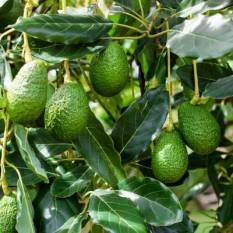MUMBAI, 7 July 2025: Rich in healthy fats, vitamins, and antioxidants, the avocado has long enjoyed superstar status among health-conscious consumers worldwide. In India, traditionally not a big avocado-consuming country, the green fruit is now steadily gaining popularity thanks to rising awareness of its health benefits and growing demand from urban middle-class and upper-middle-class consumers.
With the country’s food habits shifting, avocado farming presents a unique opportunity for farmers looking to diversify and tap into a high-value crop. But what is the domestic market outlook, which states are suitable, and what government incentives exist for avocado growers? Let’s take a closer look.
Avocado Cultivation: A Rising Star for Indian Farmers
Until a few years ago, the Indian market for avocado was very niche, with imported fruits dominating supermarket shelves. However, rising demand among fitness enthusiasts, nutritionists, and the hospitality sector has created fresh momentum for local production.
Avocado farming can fetch attractive prices, with fresh avocados retailing for anywhere between ₹250 to ₹600 per kilogram in urban markets. As a relatively low-volume, high-value crop, avocado offers an opportunity for progressive farmers, especially those willing to adopt good orchard practices and learn about this fruit’s agronomy.
Avocados are grown in scattered pockets of Tamil Nadu, Karnataka, Kerala, Maharashtra, and the northeastern hill regions. These regions’ mild climate, moderate rainfall, and well-drained soil are relatively well-suited for the crop. However, the industry is still in its infancy and has vast potential for expansion.
States with Avocado Farming Potential
While the crop is best known in Tamil Nadu’s Nilgiris belt, other promising regions are emerging:
- Karnataka — especially Chikkamagaluru, Coorg, and Hassan, where coffee estates can inter-crop avocado.
- Kerala — moderate temperatures and rainfall in hilly areas are conducive.
- Maharashtra — particularly the Western Ghats and Konkan belt, which have suitable humidity and mild winters.
- Northeastern States — Meghalaya and Nagaland, where moderate altitudes and organic farming potential make for an attractive avocado niche.
- Himachal Pradesh and Uttarakhand — early trials suggest cool hills with good soil drainage could support future expansion.
Domestic Market: A Superfood With Strong Demand
India’s demand for avocados is growing about 10–15% annually, according to market watchers. Major cities like Mumbai, Delhi, Bengaluru, Hyderabad, and Chennai are the primary consumption hubs. Consumers in these metros are increasingly seeking healthier fats, cholesterol-free foods, and nutrition-dense diets — where avocado fits perfectly.
The hospitality and restaurant sector is also fuelling the demand for fresh avocados in salads, sandwiches, and guacamole, while social media influencers are popularising avocado toast as a trendy breakfast.
With limited domestic production, the country still imports avocados from Kenya, Peru, and Mexico. As local cultivation scales up, Indian-grown avocados can gradually replace imports and reduce retail prices for consumers.
Government Incentives & Policy Support
While there is no dedicated national avocado mission like there is for oilseeds or millets, Indian farmers can benefit from the existing horticulture development programs. Under the National Horticulture Mission (NHM), states can support farmers with:
✅ Subsidies for planting material
✅ Support for drip irrigation
✅ Farmer training and orchard management support
✅ Subsidised organic farming inputs
✅ Marketing and value-chain development schemes
State governments have also begun exploring avocado’s potential. For instance, the Tamil Nadu horticulture department has run demonstration plots in Nilgiris to showcase best practices. Similarly, Karnataka’s horticulture department has included avocado as a recommended fruit crop for plantation diversification in the Malnad region.
Farmers can also benefit from NABARD-backed financing, low-interest loans for orchard establishment, and agri-insurance schemes covering perennial horticulture.
Challenges & Outlook
Avocado cultivation is not without hurdles. The crop requires well-drained soil, proper irrigation, and frost-free conditions. It is also prone to root rot if waterlogged, and susceptible to pests if grown in high humidity. The lack of standardized planting material and the current absence of large-scale avocado cooperatives are also challenges.
Yet the opportunities outweigh these challenges. Avocado’s premium pricing, growing domestic health-conscious customer base, and high-margin export potential point to a promising future. Market research suggests the Indian avocado market could double by 2030 if farmers and agri-entrepreneurs invest in quality planting material and post-harvest infrastructure.
With the right agronomic practices, policy support, and private investment, avocado could join India’s emerging portfolio of high-value horticultural exports.
Avocado is more than a social media trend — it is a genuine commercial opportunity. As consumer tastes evolve, farmers across suitable regions have a chance to tap into the superfood wave and build a sustainable, profitable niche crop. With the help of progressive cultivation practices and supportive policies, India’s avocado story is just beginning.
Image credit: makemygarden.com




















